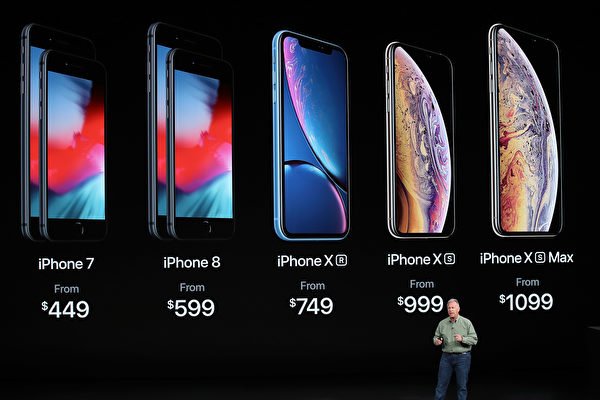Facing sluggish domestic consumption in China, the Chinese Communist Party officially announced recently that this year it will expand the implementation of the trade-in program for consumer goods. Under this program, a subsidy of up to 500 yuan will be provided for purchasing digital products such as mobile phones priced below 6000 yuan. Against the backdrop of a continuing economic downturn, many mainland Chinese citizens are skeptical of this policy, with some even voicing objections, citing concerns over the perceived unfair distribution of social resources.
On January 8th, China’s National Development and Reform Commission announced that in 2025, more products will be included in the trade-in program for household appliances. The scope of the government subsidy will be expanded to include items such as microwave ovens, water purifiers, dishwashers, and rice cookers. In terms of automobile consumption, the subsidy will be upgraded from the National III standard to the National IV standard. Moreover, there will be expansions in the replacement of agricultural machinery as well. For digital products like mobile phones, tablets, smartwatches, and fitness trackers priced below 6000 yuan, a subsidy of 15% of the purchase price with a cap of 500 yuan will be provided.
The response from mainland Chinese citizens regarding the official announcement of the new policy has been lukewarm, with some expressing direct objections.
Popular blogger “Shopkeeper” with 600,000 followers expressed his disapproval of the policy. He questioned the sustainability of stimulating immediate consumption, highlighting concerns about the potential adverse effects on future purchasing power and the fairness of the subsidy allocation. He emphasized the need to support small and medium-sized enterprises for long-term economic recovery and job creation, rather than solely focusing on consumer subsidies.
Concerning the government’s subsidy policy, many netizens also remain unconvinced. Some have calculated that the subsidy cap of 500 yuan means only mobile phones priced below 3333 yuan are eligible for the full subsidy, making it less appealing for those looking to purchase higher-end flagship models above 6000 yuan.
In a poll on the topic “Will you take advantage of the government subsidy to upgrade your phone?” published by “Sanlian Life Weekly,” the majority of netizens responded with “No.” Some even humorously remarked that a few hundred yuan subsidy is not what they lack, but rather it is the thousands they need.
Criticism and skepticism towards these new policies were abundant on social media platforms.
One netizen sharply commented, indicating a skepticism about the effectiveness of consumer subsidies alone in revitalizing the economy, stating that handing out new clothes and meals does not fundamentally improve people’s lives or stimulate economic growth.
According to Radio Free Asia, overseas economic commentator Cai Shenkun emphasized that the trade-in policy might only benefit a limited group with purchasing power in China, estimated to be less than 100 million people, thus limiting its overall impact on boosting domestic demand effectively.
Entrepreneur Hu Liren, currently based in the United States, raised concerns about the diminishing returns of such short-term subsidies on long-term economic development. He pointed out that while there might be a temporary surge in demand for household appliances due to the policy, the sustainability of this approach is questionable as consumers with limited financial capacity may eventually reach a point where they can no longer afford frequent replacements.
Overall, the mixed reactions and critical observations from both experts and the public underscore the complexities and challenges faced by China in stimulating domestic consumption and sustaining long-term economic growth amid evolving societal and economic dynamics.

